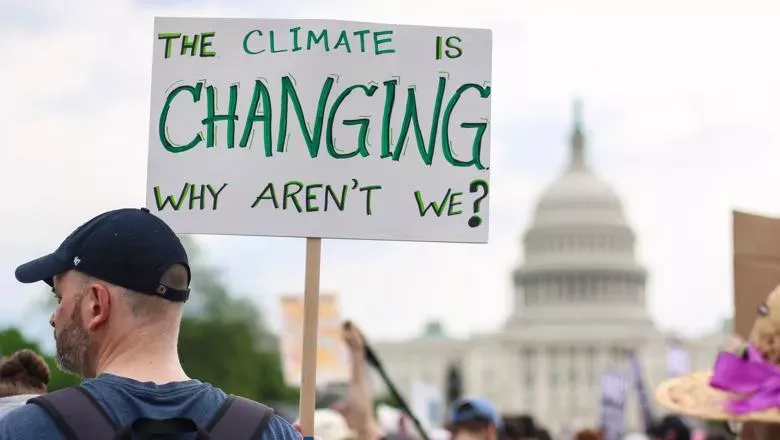31 March 2025
Can we come to terms with the loss that climate change may bring, without giving up?
By facing devastating climate impacts, a new project is set to find ways to rebuild with newfound hope and optimism

King’s are set to lead research that seeks to understand how climate-affected and vulnerable populations can come to terms with loss and change in ways that allow them to actively improve conditions in their lives.
This might be by building networks and engaging with other actors, including the state, in more direct ways.
The project Regaining the liveability of place: emancipatory futures under climate risk (REVIVE) seeks to turn climate-related loss into positive action.
Dr Helen Adams in the Department of Geography at King’s College London has been awarded the prestigious European Research Council Consolidator Grant in the 2023-24 round.
This recognises years of research to understand how to build better lives under severe climate change impacts.
She said: “Climate change is making places difficult to live in, and after an extreme weather event, people experience more trauma, loss and uncertainty around reconstruction that further undermines the fabric of communities.”
Key to the research is the idea is that the world is going to be materially different under climate change and that solutions of the past will not work in the future. Only by letting go of the world we know can we create appropriate solutions for the future, says Dr Adams.
“I’m optimistic about humanity’s ability to respond to the often-devastating impacts of climate change. Sometimes the bravest and boldest change comes from facing loss and grief head on," she said. "This project will see how we can harness hope amidst loss to help people feel more empowered through climate-related challenges. It would be a huge step forward if we can bring about a vision of resilience and positivity for communities.”
Project partners are already grappling with these questions in practice.
Research will take place in North Norfolk (UK), Lismore (Australia) and Durban (South Africa) where teams of researchers and adaptation professionals are already working alongside communities to build resilience to future climate change in ways that support psychological resilience, build connections and networks, and reduce vulnerability.
- In Norfolk, Dr Adams will work with Dr Sophie Day and the Coastwise project. Sophie is seconded from the University of East Anglia to North Norfolk District Council to work on Coastwise, funded by the UK Environment Agency and Defra. The project is trialling innovative responses to coastal erosion to build community resilience through co-created adaptation planning and delivery.
- In Lismore, Professor Andrew Rose at Southern Cross University and Mr Dan Etheridge from Living Lab Northern Rivers have been working on efforts to rebuild a resilient Lismore after devasting floods in 2022. Living Lab Northern Rivers is working with communities across Lismore to help the town thrive despite increasing climate uncertainty.
- In Durban, Professor Cathy Sutherland at the University of KwaZulu-Natal is working with colleagues from the eThekwini municipality, through the Transformative Riverine Management Programme, to look at how catchment management can protect flood effected informal settlements and build future climate resilience.
Mr Etheridge said community-led efforts in trying to do things differently after disasters was vital.
“Organisations like Living Lab Northern Rivers, Coastwise and the Transformative Riverine Management Programme see on a daily basis how difficult it is to envision a better future when you’ve lost everything. Adaptation that doesn’t take this into account risks repeating the same mistakes.”
Over the next five years the research will investigate, with its co-researchers from affected communities, how to find and build hope through loss.
It will explore learning to live with change rather than assuming stability, and how to establish new values, norms and ideologies.
The project will utilise methods that are participatory and arts-based to allow people impacted by climate change to reflect on grief, loss and anxiety in ways consistent with local interpretations of those experiences. Policy Labs, and activities to create an international community of practice, will build real world impact from the project.
Dr Adams said: “Our ambition for REVIVE is that we improve decision-making on investing in at-risk places which show vulnerability to climate change. By increasing understanding and finding new approaches, we can support communities to live with uncertainty, even in the face of climate impacts which may lead to loss.”
The project starts on 1 June 2025. Follow Dr Helen Adams on LinkedIn for updates and ways to get involved.

